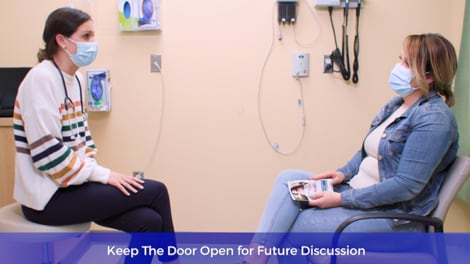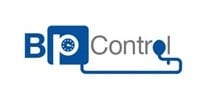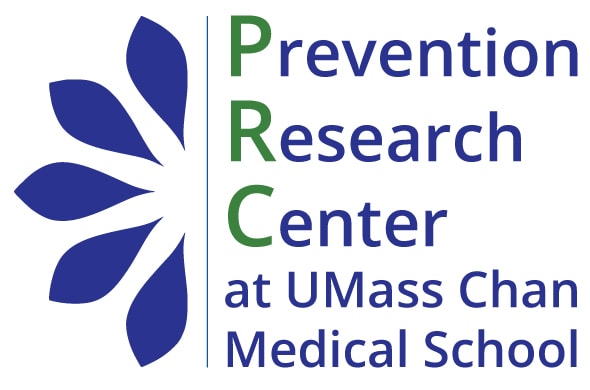Prevention Research Center at UMass Chan Medical School
Population of Focus: populations facing health disparities, patients with high blood pressure, youth, and families
Topic Areas: prioritizing social determinants of health: food access, built environment, chronic diseases, critical and emerging issues
Introduction, Mission, and Vision

Screenshot from the role-playing video for pediatric clinicians as part of the CONFIDENCE intervention.
The Prevention Research Center at UMass Chan Medical School (PRC at UMass Chan) is one of 26 Prevention Research Centers (PRCs) supported by the Centers for Disease Control and Prevention (CDC) for the 2019–2024 funding cycle. Each PRC is funded to establish and maintain their center and to conduct a core research project. PRCs may receive supplemental funding to conduct additional research projects and activities.
The PRC at UMass Chan conducts research that promotes the health and well-being of the populations it serves through evidence-based programs and strategies based in real-world settings. The vision of the PRC at UMass Chan is for optimal health of communities, families, and individuals. The mission is to prevent disease, promote health, and advance health equity through the integration of community-engaged research, practice, policy, and education.
Guided by an active Community Advisory Board, the PRC at UMass Chan is a fundamental partner in the collaborative public health ecosystem in Greater Worcester and is a national model for research that connects academia, public health, community, and health care systems.
Core Research
Each PRC uses a community-engaged approach to conduct one primary applied public health prevention research project called a core research project. Project activities include design, development, implementation, evaluation, and dissemination. PRCs use at least 50% of their CDC funding to conduct the project in partnership with communities.
BP Control

BP Control is an applied research project being implemented by the PRC at UMass Chan.
The PRC at UMass Chan’s core research project for the 2019–2024 funding cycle is an applied research project called BP Control: Economic Analysis of a Community Health Worker-Delivered Intervention to Enhance Antihypertensive Medication Adherence in Accountable Care Organizations.
Previous research has shown that taking blood pressure medicine consistently protects a person’s heart, brain, and kidneys. Controlling blood pressure is important to both individual and population health.
Participants in the BP Control project are referred to a community health worker for coaching to take their blood pressure medication as prescribed. The PRC at UMass Chan researchers study the costs and return on investment of the project, as well as blood pressure control among people with high rates of uncontrolled blood pressure.
As a quality improvement program, the project has created systems to track quality indicators, such as the percentage of patients who have their blood pressure measured and their medications reconciled.
Additional Research
PRCs may receive supplemental funding to work on additional research projects each funding cycle. These Special Interest Projects (SIPs) focus on a variety of health topics or gaps in scientific evidence. PRCs can also conduct additional research as part of SIP Thematic Research Networks, which are groups of PRCs working together on related health topics.
Building Resilience Against Climate Effects (BRACE): Enhancing Practical Guidance to Support Climate and Health Adaptation Planning
BRACE 3.0 is a SIP consisting of a comprehensive framework and e-learning system, to support public health departments and their partners across the country in addressing climate change in a manner aligned with the Public Health 3.0 vision of public health.
Project outcomes will be a revised framework and a suite of technical guidance and capacity-building materials and tools for public health practitioners to plan and implement climate and health adaptation and mitigation interventions.
PRC Vaccine Confidence Network (PRC VCN)
In April 2021, CDC funded a 12-month award to all 26 PRCs to form the PRC VCN in support of the agency’s Vaccinate with Confidence strategy for COVID-19. As part of this network, The PRC at UMass Chan is examining vaccine hesitancy to find ways to promote vaccine confidence, increase vaccine uptake, and reduce disparities among African American, Latino, rural, and youth populations. The goal is to reduce the incidence and burden of COVID-19 in the United States.
The PRC’s strategy includes a focus on promoting the vaccination of young people and families in partnership with the City of Worcester, agencies that serve young people, and health care providers (including pediatricians).
Perinatal Psychiatry Access Programs: Evaluating Patient-, Provider-, and Program-Level Outcomes Across the US
Perinatal Psychiatry Access Programs offer education, consultation, resources, and referrals to build the capacity of perinatal care providers. This SIP study seeks to develop a feasible, scalable approach to evaluating and improving access programs in diverse real-world settings.
For this study, the PRC at UMass Chan will:
- Develop and assess the feasibility of an approach to address evidence gaps in patient- and provider-level outcomes.
- Identify additional gaps in patient-, provider-, and program-level outcomes and approaches to address those gaps.
- Develop a consensus measurement framework for assessing perinatal mental health care across access programs.
Development and Implementation of a Community Health Worker-Delivered Intervention to Improve Health and Social Outcomes for Adults with Epilepsy
This study will provide a model framework for integrating community health workers (CHWs) into epilepsy care teams. It will also conduct a randomized controlled trial to show the efficacy of a specialized epilepsy intervention using CHWs. Researchers hypothesize that a CHW-delivered intervention will improve quality of life, increase patient confidence and knowledge, promote enrollment into self-management programs, and link patients with community and clinical services.
Physical Activity Policy Research and Evaluation Network (PAPREN) Coordinating Center
PAPREN seeks to increase physical activity in communities by working across sectors, focusing on factors that affect the built environment (such as land use and transportation policies), and integrating health equity into all policy efforts. As part of this network, the PRC at UMass Chan works to help local health departments play a larger role in making decisions in their communities.

Location: Worcester, Massachusetts
Principal Investigator: Stephenie C. Lemon, PhD
Email: prc@umassmed.edu
Twitter – @PRCUMassChan
Facebook – PRC at UMass Chan
Instagram – @PRCUMassChan